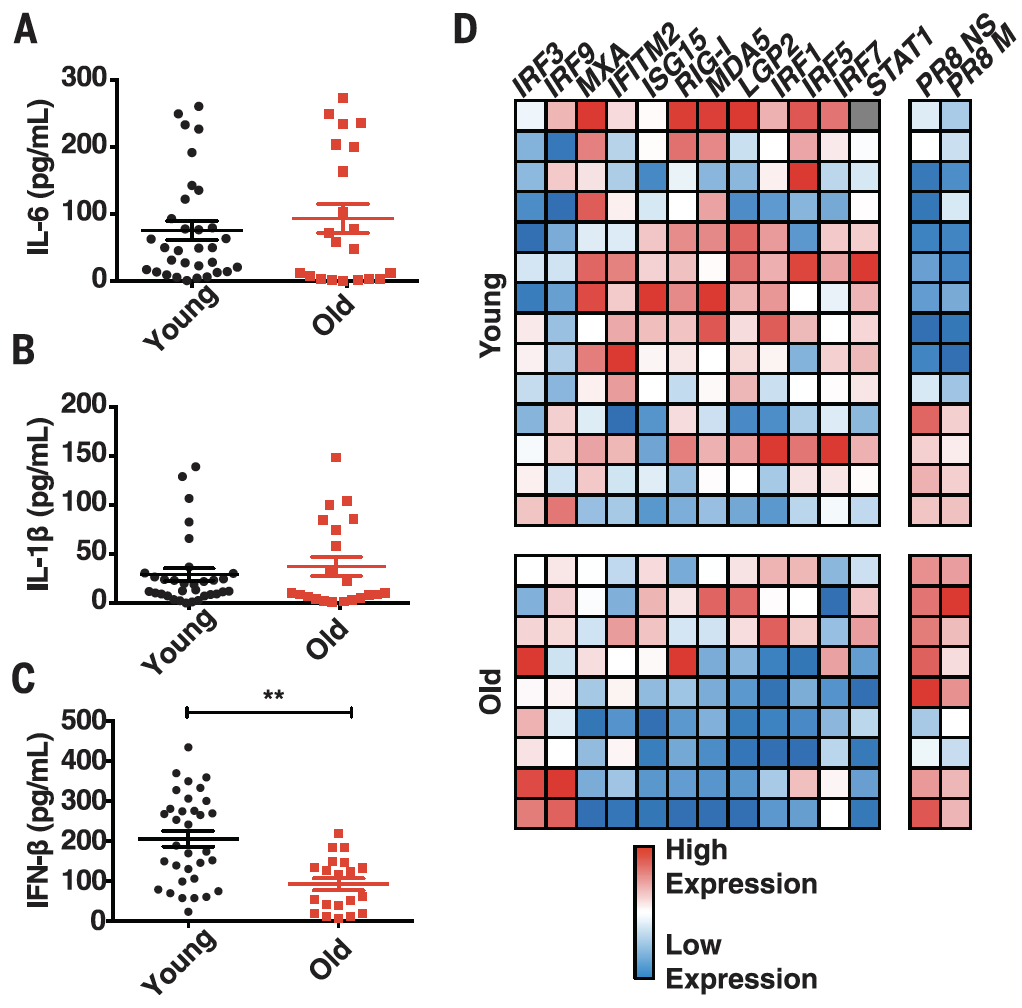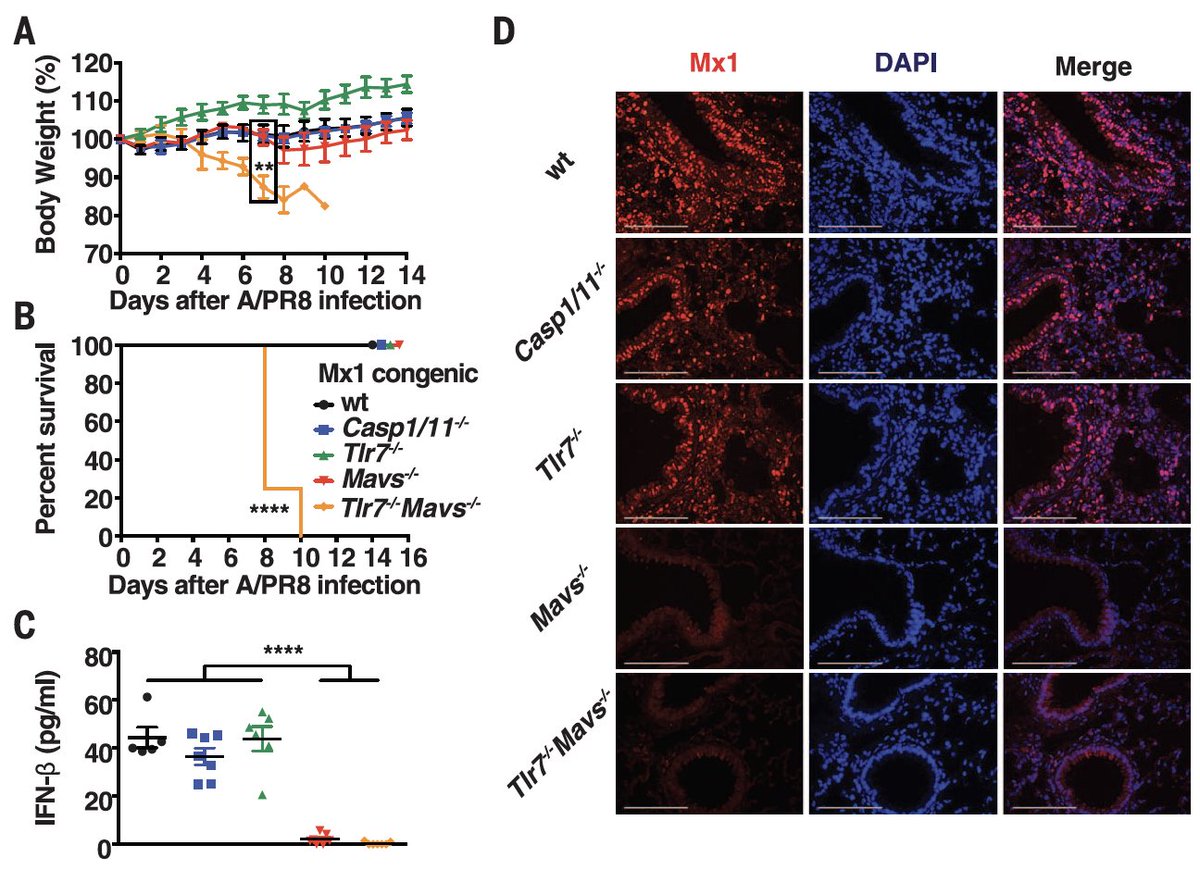As the elderly are more susceptible to #COVID19 w/ signs of lung #inflammation, here& #39;s a thread about our @virusesimmunity 2016 flu paper on #antiviral resistance, excessive lung #inflammation, & a strategy to boost disease tolerance! https://science.sciencemag.org/content/352/6284/463.long">https://science.sciencemag.org/content/3...
First we demonstrated that monos & macs from older adults have impaired type I IFN (antiviral) & #ISG responses but intact cytokine responses after #flu infection. To probe the possible in vivo consequences of weak #IFN responses in the face of robust inflammation...
... we made a mouse model that mimicked this immune response in the elderly (Mx1+/+ mice w/ genetic deletion of tlr7, mavs). Failure to induce type I IFN led to high viral titer, 2º bacterial infection, severe lung inflammation, and death.
To our surprise, if we ALSO deleted the #inflammasome pathway (tlr-/-mavs-/-casp1/11-/-), mice still had high flu viral & bacterial titers, but SURVIVED (less immunopathology, reduced venular necrosis). In the absence of IFN responses, del of casp1/11 rescued mice from lethality.
We discovered that inflammation was driven by #neutrophil #NETosis. We improved survival by blocking PMN or using #Pulmozyme (rhDNase) to break up NETs. A direct implication of our findings: older adults may benefit from therapeutic strategies that boost disease tolerance…
Check out the figure! A susceptible host is unable to reduce pathogen burden or tolerate the negative consequences of the immune response to infection. A tolerant host regains #fitness by reducing the immunopathology and #tissuedamage. https://www.nature.com/articles/nri3665">https://www.nature.com/articles/...
Symptomatic & asymptomatic individuals have been shown to have similar SARS-CoV-2 viral loads. Therefore boosting #diseasetolerance could be an effective strategy to improve clinical outcome. Thanks for reading & stay safe! #academictwitter

 Read on Twitter
Read on Twitter






